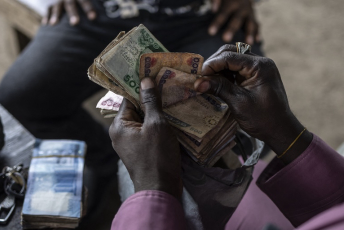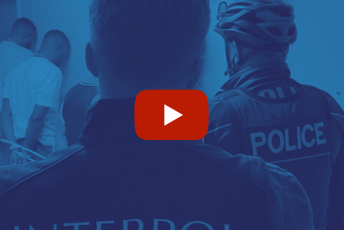There were fears that Kenya’s national general election on 9 August 2022 – the country’s 14th – would see unrest similar to previous years. Organised criminal gangs and thugs that operate across a wide range of illegal activities take up ‘election season’ activities and are a prominent feature of Kenya’s election history, used by politicians to stir up intimidation and violence.
However, the United Nations and independent election observers declared the polls to be relatively peaceful. William Ruto won the election by a slim 1% of the presidential vote, a result later upheld by the Supreme Court.
Before the election, reports had suggested the likelihood of election-related violence, based on a decline in peace, higher levels of hate speech and political incitement, ethnic divisions and hooliganism during the campaign period.
In February 2022, the National Cohesion and Integration Commission (NCIC) identified 23 of Kenya’s 47 counties as hotspots for electoral unrest, owing to the ‘reawakening of organised criminal gangs and goons likely to be used for intimidation, criminal activities such as robbery, and ethnic violence.’
ENACT research anticipated violence at the hands of organised gangs, based on findings from Marsabit, Nairobi, West Pokot, Trans Nzoia, Isiolo, Laikipia, Kwale, Kilifi and Mombasa counties. Gang leaders in Nairobi, Mombasa and Kilifi said they’d been paid by top politicians to provide bodyguards, voting agents and thugs to disrupt rivals’ rallies and destroy campaign materials. Just a month before the polls, then interior cabinet secretary Fred Matiang’i warned about the regrouping of gangs before the polls.
Except for 2002, all the general elections in Kenya since the country returned to multi-party politics 31 years ago have been marred by violence, much of it perpetrated by ethnic militias and organised criminal gangs.
Organised criminal gangs have been employed by politicians to assassinate opponents or election officials, destroy voting materials, disrupt campaign rallies and contest results through violent post-poll demonstrations. These criminal groupings were largely responsible for the approximately 1 500 deaths during and after the 2007/8 general election.
These criminals have thrived in Kenya despite past government interventions, including disarmament, judicial inquiries into election violence, a cap on election campaign financing and enacting legislation, such as the Prevention of Organised Crime Act (2010) and the Proceeds of Crime and Anti-Money Laundering Act (2010).
The state has also banned known criminal gangs in the past 14 years – 18 in 2002, 33 in 2010 and 89 gangs in 2016. However, these gangs keep mushrooming or mutating. In 2018, the National Crime Research Centre counted 326 gangs in the 16 counties it surveyed.
Against the odds, and despite occasional flare-ups, the activities of these groups were largely muzzled during the August 2022 elections. There are several reasons for this.
Kenya’s security apparatus was better prepared this time, training and deploying more law enforcement and security officers to electoral hotspots ahead of the elections. Authorities were quick to respond to any signs of possible violence, gang mobilisation and/or election threats countrywide.
This proactive approach was arranged, facilitated and coordinated by a multi-agency body, the Election Security Arrangement Programme. This comprised the Independent Electoral and Boundaries Commission, judiciary, police, Office of the Director of Public Prosecutions, Office of the Registrar of Political Parties, Independent Policing Oversight Authority, NCIC and National Steering Committee on Peacebuilding and Conflict Management.
Politics in Kenya has also changed with the amendment of the Political Parties Act, which provides a legal framework for pre-election coalitions. Previously, political party coalitions crumbled quickly due to mistrust over power and resource sharing, fragile organisation and the absence of a water-tight dispute resolution mechanism. The amended law allows political parties to reach out to former bitter rivals in the hopes of gaining more support.
The ruling party, Jubilee, worked with their opposition and former rival, the Orange Democratic Movement (ODM), to form Azimio la Umoja Kenya- ‘One Kenya’, a coalition of 26 political parties, led by then president, Uhuru Kenyatta, and the ODM’s Raila Odinga.
Criminal gangs allied with political parties and individual politicians seemed uncertain about leveraging influence and operating within this changed political environment, which seemed to discourage political warlords from creating exclusive tribal voting blocs. One leader of the Gaza criminal gang based in Kayole in Nairobi’s Eastlands told ENACT: ‘How do you now target a person who was your paymaster until a year ago? How now do you fight alongside a person you berated not long ago? Things really changed; there was so much fog in the political atmosphere.’
After the 2007/8 post-election violence, Kenyatta, Ruto and four other top-ranking officials and politicians were arraigned before the International Criminal Court (ICC) on charges of crimes against humanity. Politicians who lost in the 2022 elections were wary of summoning gangs and militias for fear of being indicted by the ICC. This informed Raila’s decision to accept the Supreme Court’s confirmation of Ruto’s win, even though he disagreed.
‘For the first time, this election was about issues,’ senior journalist Walter Menya told ENACT. ‘It wasn’t about the politics of personalities that attract ethnic-based militia and gangs that purport to fight for one of their own.’ Ruto advocated for the ‘bottom-up’ economic model, while Raila promoted social welfare and free healthcare.
Yet despite the muted activities of criminal gangs during the August 2022 elections, it remained likely, based on Kenya’s history of violent elections, that new routes to influencing election outcomes would be found. Indeed, just as ENACT and the NCIC predicted, organised criminal gangs reappeared barely six months after the election, reviving old grievances and sparking a new political crisis.
Called for by opposition leader Raila, weekly anti-government protests began on 21 March 2023 against the high cost of living, the government’s unilateral reconstitution of the electoral body and “electoral malpractice” in the August 2022 election, among a raft of other grievances.
Then, in near simultaneous attacks on 27 March 2023, gangs torched a church and mosque, and looted and destroyed properties belonging to former President Uhuru Kenyatta and Raila. According to media reports, the youths who raided Kenyatta’s farm were recruited from Kiambu and Nairobi counties. Each gang member was paid US$22.50 (Sh3 000) and handed machetes and power saws to mow down trees at the vast farm. And although intelligence was shared within relevant security circles, no action or directive was issued to prevent the invasion. Local security officials told the media that they were instructed not to respond.
To date, at least three people (including a police officer) have died, and property worth billions of Kenya shillings have been stolen or destroyed by marauding gangs and police in the ongoing anti-government protests and heavy-handed police response.
The ever-present potential for political crises to fuel violence perpetrated by paid criminal gangs poses a real danger to Kenya’s democracy. Limiting violence in the 2027 election will depend on continued government focus to disrupt the organisational, operational and funding structures of these gangs and militias. And, as important, prosecuting their leaders and political funders.
Ken Opala, GI-TOC Analyst
Read the full paper on criminal gangs and elections in Kenya here.







